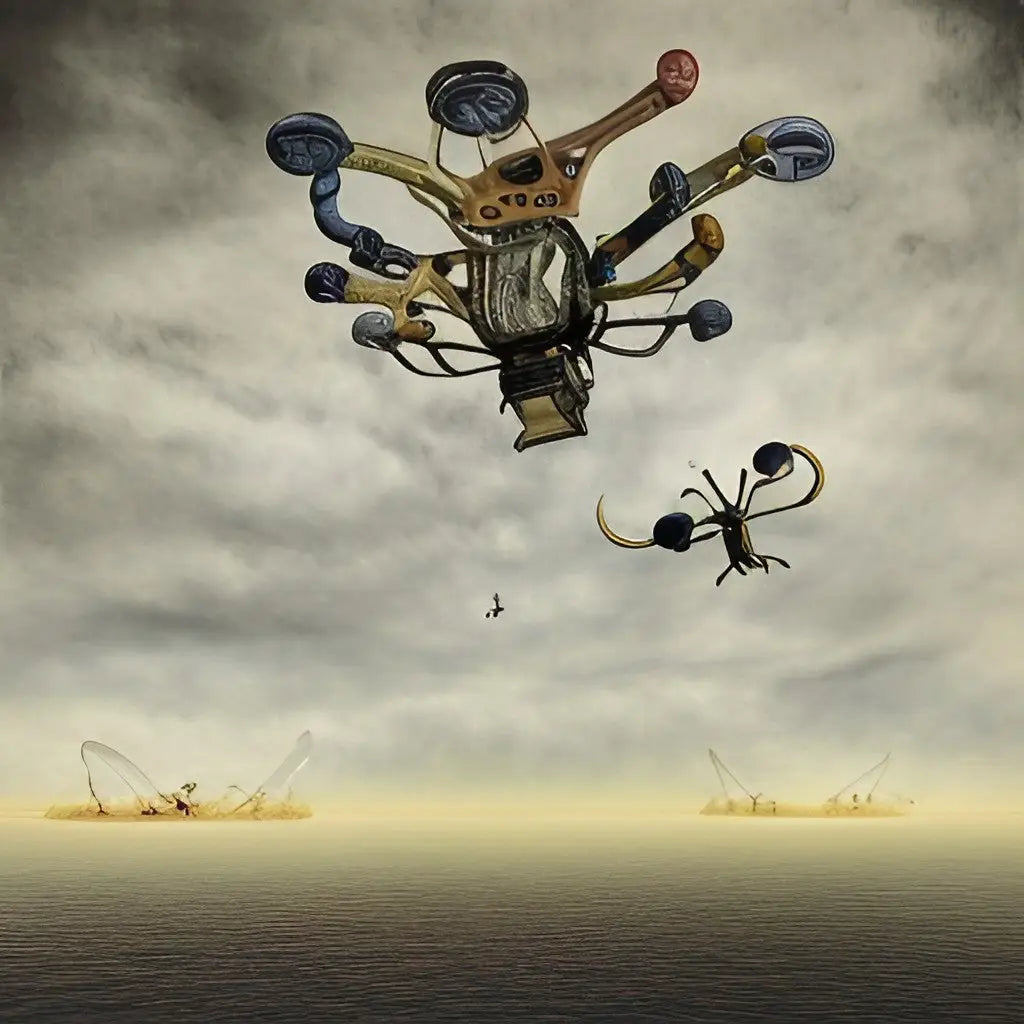Drones have come a very long way in a very short time. At first, they were reserved for the military due to the level of sophistication they involved. They later entered the consumer world as toys. But thanks to technological advancements, we now have advanced consumer and prosumer drones. When looking for a drone, one of the factors to consider is how far it can fly (also known as the range) since that partly determines how you can use it. So, how far can drones fly?
Most drones can fly from a few feet (for toy drones) to 6 miles from the controller. Specially designed military drones fly up to several kilometers from the control station.
Read for more about drone ranges and how to extend how far a drone can fly.
Factors Affecting a Drone's Flight Range
Below are the main factors affecting how far a drone can fly.
Communication Type between the Drone and Controller
The most significant factor determining how the drone will fly is its connection or transmission type. There are three ways drones connect to the controller;
-
Radio Frequencies – This is the most popular connection type found in most toy and consumer drones. Both the drones and controllers will have a receiver and transmitter. So, when you press the controls, they are converted to radio signals and transmitted to the drone, whose receivers will translate into commands that the Flight Controller will execute in conjunction with the ESC (Electronic Speed Controller).
-
Bluetooth – Some drones will link to the controllers through Bluetooth. Such drones will have a limited range since Bluetooth only operates within a small radius.
-
GPS – This is the ultimate communication method, often used by the military. The communication is accomplished through satellites, allowing the drone to fly thousands of kilometers away from the controller.
Purpose or Type
Drones come in different types and are built for different purposes. For a toy drone, the manufacturer will not invest in high-end tech to expand a drone's range, but they will for a consumer or prosumer drone. Drones designed for BVLOS or EVLOS flying for activities like land survey or package delivery will utilize range extenders to ensure they fly farther.
Battery
The nature and size of the drone's battery affect how far it can fly. Even when you have a drone with a very long range, if the batteries are damaged, not fully charged, or not well-maintained, you can't utilize the full range provided by the manufacturer.
Size
The larger the drone is, the slower it will move, depleting the battery faster. As a result, the drone won't fly that far from the controller.
Various Drone Models and Their Flight Ranges
Below are some popular drone models, how far they can fly, plus their level of autonomy.
|
Drone Model |
Range |
Flight Time |
Level Of Autonomy |
|
DJI Air 2S |
7.5 Miles |
31 Minutes |
Level 2 – Partial Drone Autonomy |
|
DJI Mavic Air 2 |
6.2 Miles |
34 Minutes |
Level 2 – Partial Drone Autonomy |
|
Autel Robotics Evo II |
5.6 Miles |
40 Minutes |
Level 2 - – Partial Drone Autonomy |
|
DJI Phantom 4 Pro |
4.3 Miles |
28 Minutes |
Level 2 – Partial Drone Autonomy |
|
Zipline Delivery Drone |
93 Miles |
15 Minutes |
Level 3 – Conditional Drone Autonomy |
|
RQ-4 Global Hawk |
14,154 Miles |
30 hours |
Level 4 – High Autonomy |
How to Increase a Drone's Flight Range?
Below are some ways to extend your drone's range.
-
Make sure you are using good batteries. If possible, get batteries with a higher capacity as long as they don't weigh down the drone.
-
Avoid flying in areas with too many obstacles since they may block or interfere with the signals.
-
Invest in range extenders, which are devices to make the signal travel for a longer distance, allowing the drone to travel further than it would have and still be in connection with the controller.
-
Invest in Wi-Fi repeaters, which work similarly to the range extenders.
-
Avoid flying when it's too cloudy or when there's a sign of a storm.
- Always ensure the antennas point to the sky.
